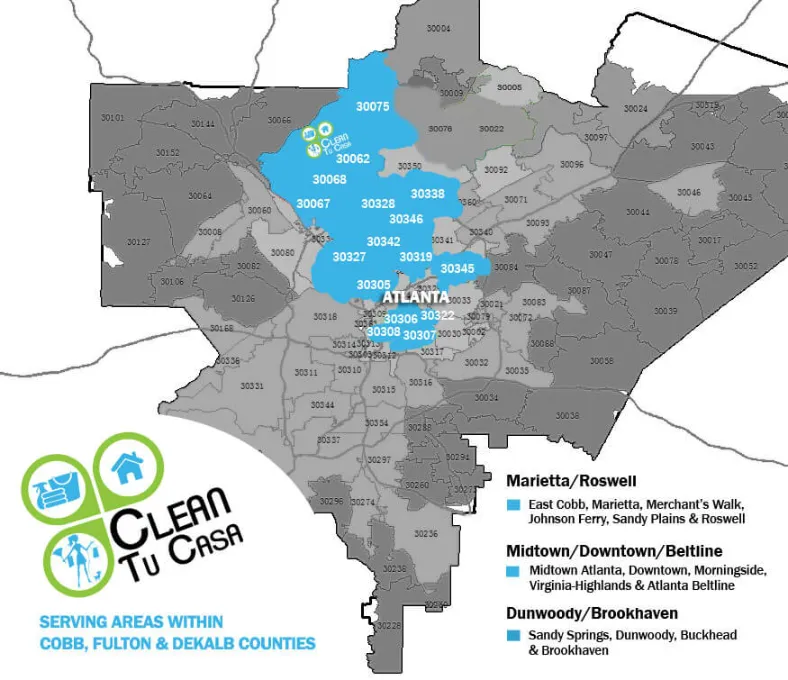Lifestyle
Published On
Cleaning Black Friday Thrift Finds: A Guide for Thrifters
Written By
The last Friday of November has come and gone… and your impressive Black Friday thrift haul is a sign of a day well spent. As much as you’re reveling in your unique finds and unbeatable deals, it's essential also to embrace the responsibility that comes with cleaning and sanitizing your newfound treasures.
In this guide, we'll navigate the exciting realm of Black Friday thrifting, addressing the unique cleaning challenges faced by avid thrifters after the rush of Black Friday shopping.
Secondhand Shopping is on The Rise
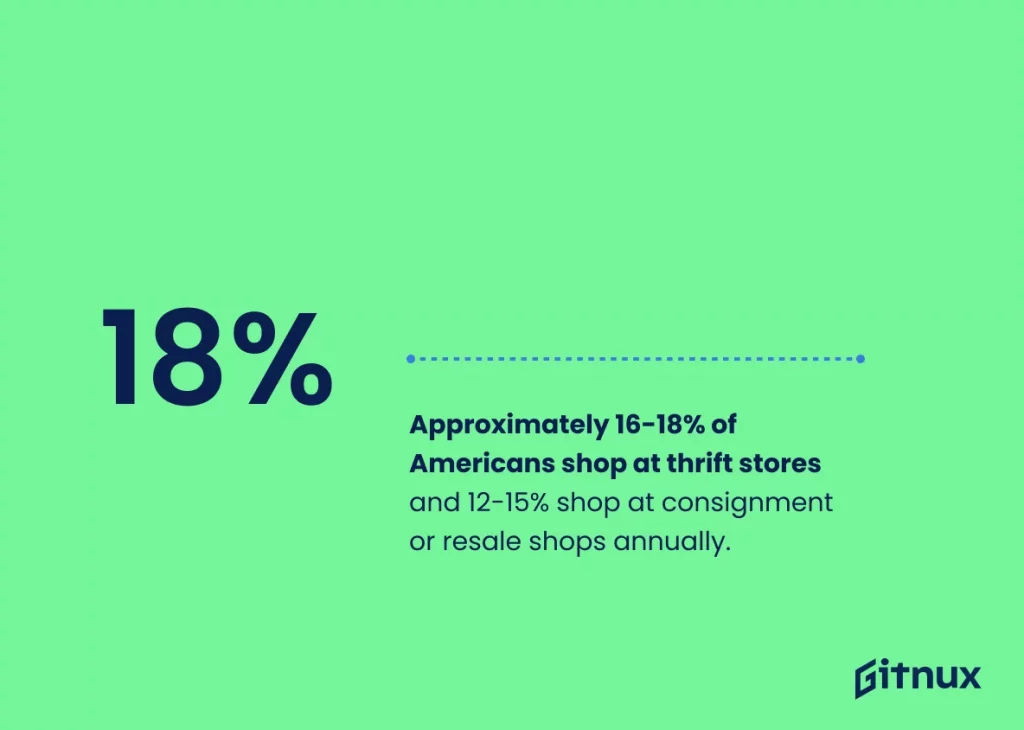
The wave of resale shopping is sweeping across the nation and is a booming industry, growing at a steady rate of 7% per year for the past two years. This is no big surprise, considering that about 16-18% of Americans shop at thrift stores. Clearly, this industry is here to stay and possibly replace fast fashion.
However, as the popularity of secondhand shopping soars, it's only natural for consumers to express concerns about the cleanliness of thrifted items, especially considering the heightened awareness of health and hygiene in recent times. This is why knowing how to clean and sanitize the thrift finds in your Black Friday haul is necessary.
Essential Inspection Tips Before You Buy
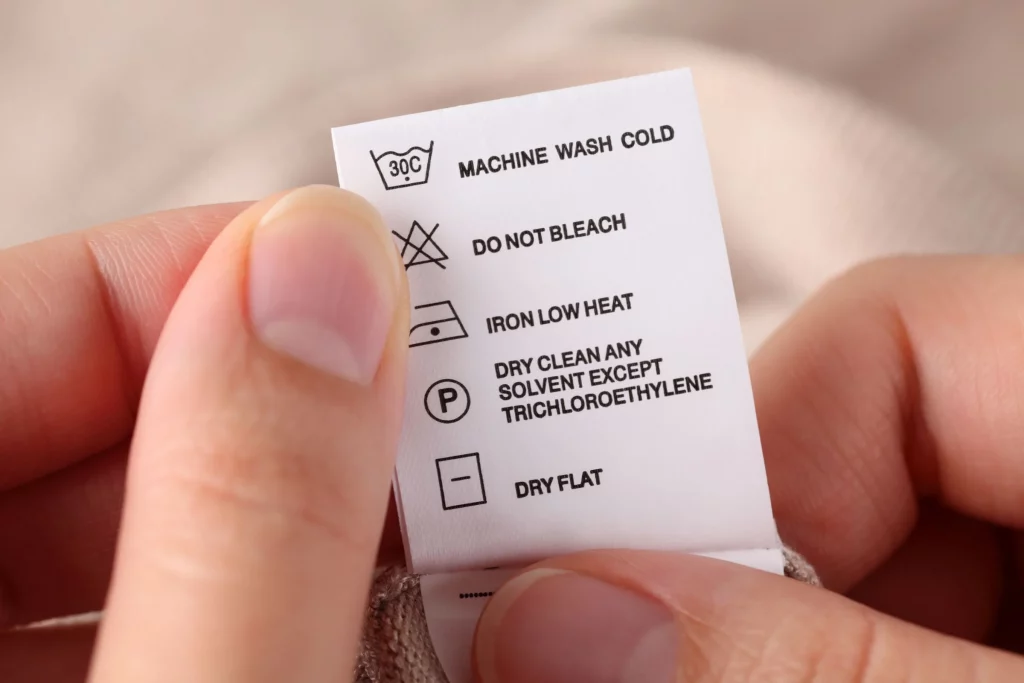
Before bringing your Black Friday thrift treasures home, follow these essential inspection tips to guide your buying decision.
- Thorough Visual Examination: Conduct a meticulous visual inspection of items. Look for stains, discoloration, and signs of damage. Take your time to ensure you're aware of any imperfections before committing to a purchase. You should run your hands over the fabric, feeling for any irregularities. Sometimes, stains or damage might be subtle and more easily detectable through touch. Also, pay special attention to seams and edges, as these areas are prone to wear and tear. Ensure the stitching is intact and edges are secure, preventing surprises when you start the cleaning process.
- Verifying Labels and Care Instructions: Before making a final decision, locate care labels on clothing or items. Care labels have symbols that provide valuable information about the recommended cleaning methods and potential fabric sensitivities you need to know. Learn to decipher care symbols commonly found on labels. That way, you can figure out if you can maintain the cloth. If an item requires special cleaning techniques, take the time to research and ensure you're equipped to handle the cleaning process effectively.
- Assessing Structural Integrity: Assess the stability of furniture finds by gently rocking or applying slight pressure. Loose joints or wobbling may indicate structural issues that could compromise the longevity of the piece. You can check the strength of clothing items by gently pulling on seams and stress points. This helps identify weaknesses or potential tears that may not be immediately visible. Inspect hardware elements, such as zippers, buttons, or clasps, if applicable. Ensure they are in good condition and securely attached.
- Allergen Assessment - Given that thrifted items may have been stored for an extended period, check for accumulated dust. This is particularly crucial If you or someone in your household has allergies. Wipe down items or consider a thorough cleaning routine for allergy-prone items.
- Checking for Pests: Conduct a thorough visual inspection of thrifted furniture for signs of pests like termites. Look for small holes, sawdust-like debris, or live insects. Shine a flashlight along seams, joints, and crevices to detect hidden pests. This is especially crucial for wooden furniture, where pests may hide in the cracks.
Cloth Cleaning Techniques
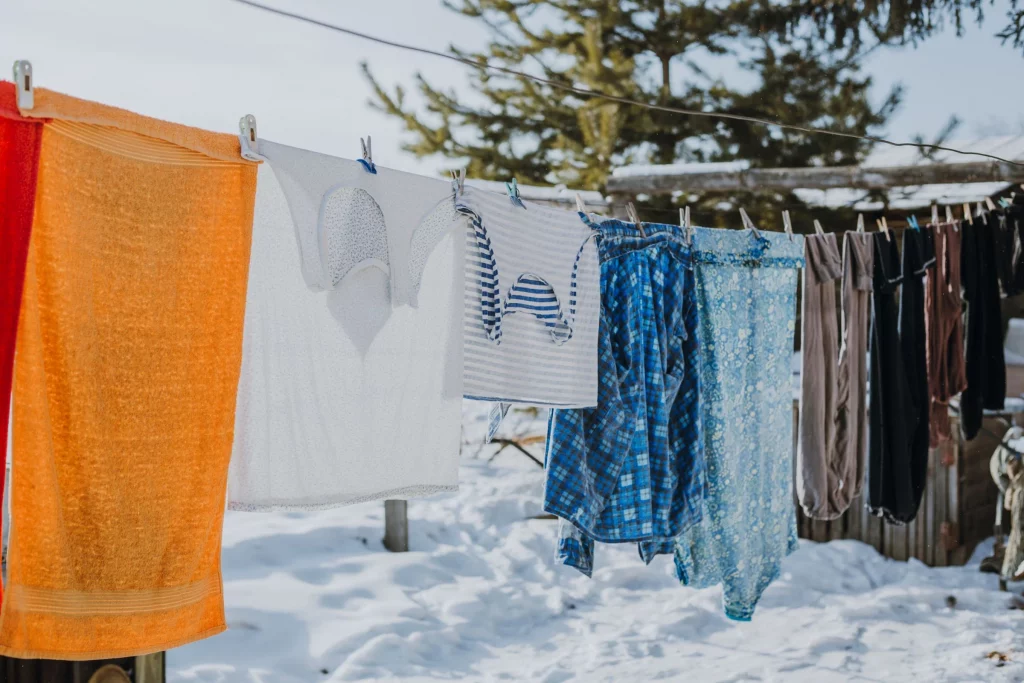
- Best Ways To Sanitize Fabrics
- Steam Cleaning: Invest in a handheld garment steamer to sanitize and freshen thrifted clothing effectively. Steaming helps eliminate germs and odors without subjecting fabrics to harsh washing.
- Freezing Method: Place garments in a plastic bag and freeze them overnight. This method helps kill bacteria and reduces musty odors without causing any damage to the fabric.
- Sunlight Exposure: Sunlight is a natural disinfectant. Hang thrifted clothing items in direct sunlight for a few hours to naturally sanitize and refresh them.
- Removing Stains and Odors
- Vinegar Solution: Create a solution of equal parts white vinegar and water. Dab this mixture onto stains using a clean cloth. Let it sit for a few minutes before gently blotting or rubbing, depending on the fabric.
- Baking Soda Paste: Apply a paste with baking soda and water to stained areas. Allow it to dry before brushing off the residue. This method effectively tackles both stains and accompanying odors.
- Lemon Juice for Stains: For light-colored fabrics, lemon juice can be an effective stain remover. Apply lemon juice to the stain and let it sit in the sun for natural bleaching. Rinse thoroughly afterward.
- Special Care for Delicates
- Hand Washing: Delicate fabrics, lace, or intricate designs often benefit from gentle hand washing. Use a mild detergent and lukewarm water, avoiding any rubbing or twisting that may damage delicate fibers.
- Mesh Laundry Bags: Place delicate items in mesh laundry bags before machine washing. This protects them from abrasion and potential snags during the wash cycle.
- Air Drying: Opt for air drying rather than a machine dryer for delicate items. Lay them flat on a clean towel to maintain their shape and prevent stretching.
Furniture Cleaning Strategies
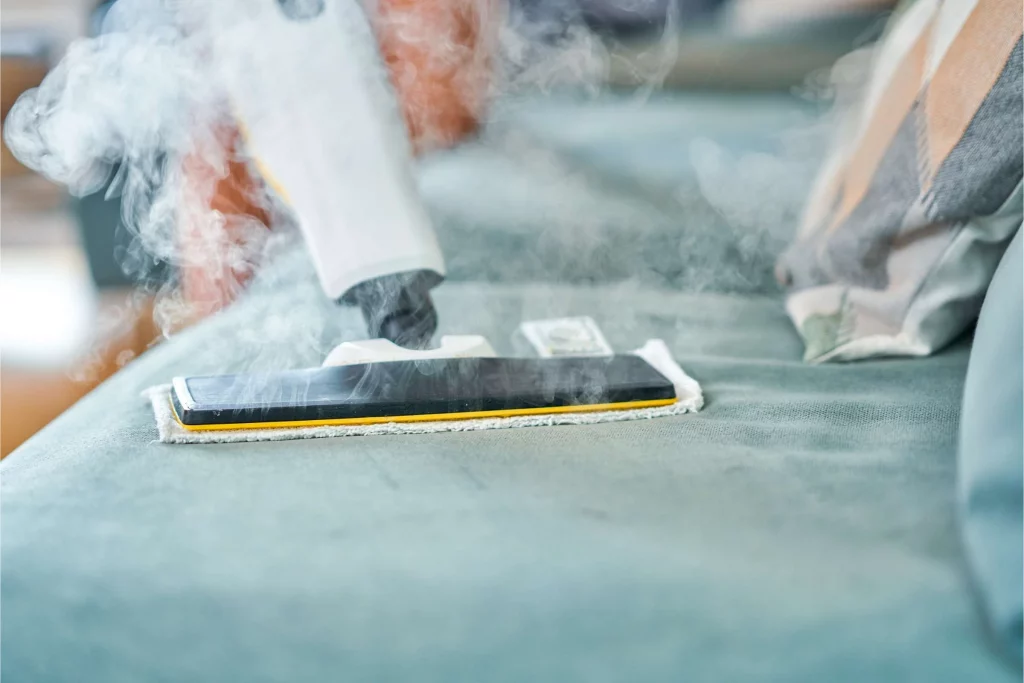
- Surface Disinfection
- Disinfectant Sprays: You can use a gentle disinfectant spray suitable for furniture surfaces. Ensure it is safe for the specific furniture material, and follow the instructions for proper application.
- White Vinegar Solution: Create a solution of white vinegar and water to disinfect surfaces. This natural alternative is effective against germs and is particularly suitable for wooden or hard surfaces.
- Disinfectant Wipes: For quick and targeted disinfection, use disinfectant wipes. These are convenient for wiping down high-touch areas and intricate details on thrifted furniture.
- Addressing Upholstery Challenges
- Fabric-Specific Cleaning: Identify the type of fabric on the upholstery and use a cleaning solution suitable for that fabric. Always test in an inconspicuous area first to ensure it won't cause damage.
- Steam Cleaning: Steam cleaning is effective for refreshing and cleaning upholstery. It helps eliminate odors and sanitizes without the need for excessive moisture. However, you can always cal professionals if you can't handle it yourself.
- Baking Soda for Odors: Sprinkle baking soda on upholstery to absorb odors. Let it sit for a few hours or overnight before vacuuming it away. This method is handy for thrifted furniture with lingering smells.
- Wooden Furniture Care
- Dusting and Polishing: Regularly dust thrifted wooden furniture with a soft cloth or a microfiber duster. Polish surfaces with a furniture polish or a mixture of olive oil and white vinegar for a natural shine.
- Avoid Harsh Chemicals: Steer clear of harsh cleaning chemicals that can damage the finish of wooden furniture. Stick to mild, wood-friendly cleaners to maintain the integrity of the wood.
- Protective Coatings: Consider applying a protective coating to wooden surfaces, such as beeswax or furniture wax. This provides an additional layer of protection against scratches and wear. Also, consider using a preventive pest treatment for thrifted furniture to prevent potential infestation, especially if you're uncertain about its history.
Benefits of Thrifting Responsibly:
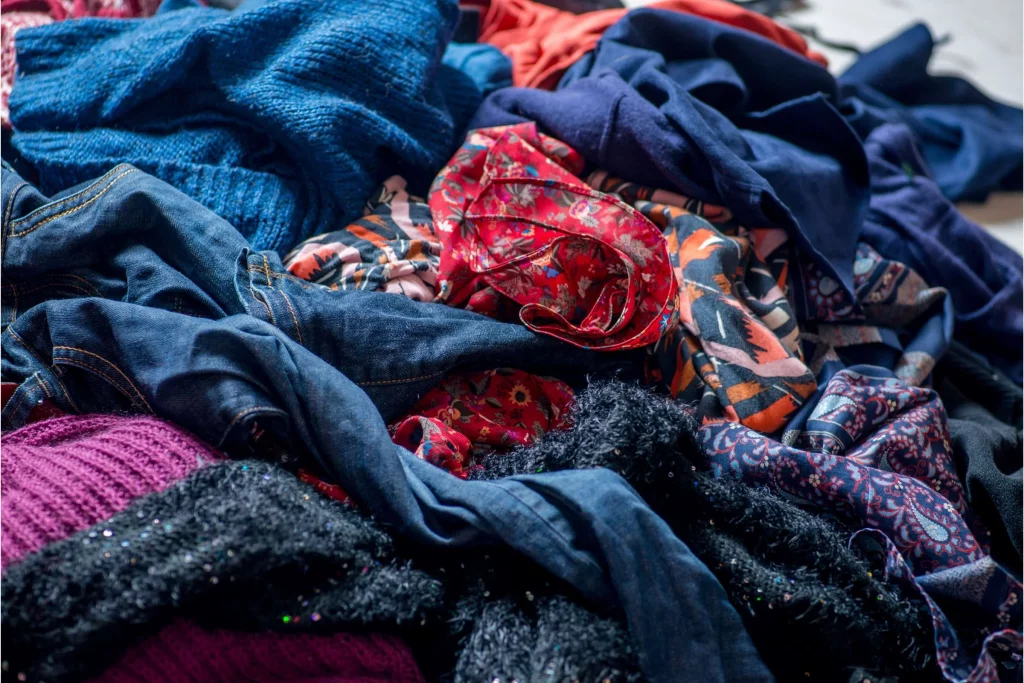
- Environmental Impact: Thrifting helps divert textiles from landfills, reducing the environmental impact of fast fashion and contributing to a more sustainable waste management system. Additionally, by reusing pre-owned items, thrifters actively lower the demand for new production, reducing the carbon footprint associated with manufacturing and transportation.
- Supports Local Businesses: Thrifting at local stores directly supports the community by contributing to local economies and creating job opportunities.
- Budget-Friendly Living: Thrifting allows access to a wide range of affordable and stylish clothing, reducing the financial strain associated with fashion trends. Furnishing and decorating a home becomes more affordable with thrifted finds. You can create a unique and personalized living space without breaking the bank.
- Creating Unique Style -The eclectic nature of thrift stores provides access to one-of-a-kind items, allowing you to curate a wardrobe or living space that stands out and reflects your individuality. Thrifting encourages the discovery of timeless pieces that transcend trends, promoting a more sustainable and enduring approach to personal style.
Conclusion
As we conclude our exploration of responsible thrifting, remember that the journey doesn't end with the Black Friday finds. With the knowledge of effective cleaning techniques and an understanding of the benefits of thrifting, you can continue shopping confidently. Whether you're contributing to a greener environment, supporting local businesses, or embracing budget-friendly living, responsible thrifting is a lifestyle that extends beyond your wardrobe or home décor. Cherish your valuable finds, and may each thrifted treasure tell a story of sustainability and style.
Clean Tu Casa is the team to call for any cleaning service in Atlanta. We offer Atlanta residential cleaning services and corporate cleaning services. We provide commercial cleaning services in Marietta, Buckhead, and Brookhaven areas. Whether you want a one-time, weekly, bi-weekly, or monthly cleaning, simply reach out to us for your free quote today.
